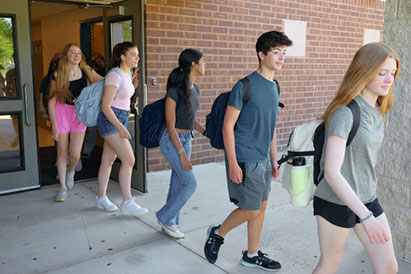Democracy is on the ballot next week. In this final sprint to Election Day, a stunning 82% of registered voters believe democracy is not working as well as it should or at all, according to a December 2023 poll conducted by Hart Research on behalf of CivxNow partner More Perfect. Reciprocally, voters rank “protecting basic rights and freedoms” and “protecting and improving democracy” among the most important issues in the 2024 Election.
Reciprocally, voters rank “protecting basic rights and freedoms” and “protecting and improving democracy” among the most important issues in the 2024 Election.
- Ninety-two percent of voters agree or strongly agree that democracy is facing serious threats today.
- A significant percentage (43%) said schools failing to teach civics and the value of citizen involvement in our democracy is a major problem.
- A leading indicator of this challenge is an age gap in the data among those who strongly agreed with the statement, “Our democracy needs improvement, but it is still the best system of government there is.” Fifty-eight percent of those age 65-plus strongly agreed versus 34% of 18-34 year olds.
Too many young people are losing faith in our country as political division, distrust, and polarization undermine our constitutional democracy. Regardless of Tuesday’s outcomes, our nation desperately needs to come back together, and the best way to strengthen democracy is to teach it. As our nation turns next to its 250th birthday, this means civic education that is relevant, meaningful, and engaging for each new generation – civic education that inspires a belief in our country, and instills in youth a sense of belonging and a confidence to shape the world around them and work with others to solve problems together.
Both party platforms endorse stronger K–12 civic education. For Democrats, this means investments in “evidence-based programs and pedagogical approaches” and “qualified, first-class, well-trained, passionate educators.” Republicans seek to “promote love of country and authentic civic education,” including “support(ing) schools that teach America’s founding principles.”
Democrats and Republicans alike should therefore commit to universal student access to high-quality K–12 civic education with a bipartisan platform that includes:
- A full year of civics course in high school (currently offered in only six states);
- A semester-long civics course in middle school ((currently offered in only five states);
- Dedicated instructional time for civics in grades K–5 (currently offered only in New Hampshire); and
- Public funding for high-quality civics curriculum and materials, teacher training, and student programming.
Public funding is essential for civics’ prioritization in our nation’s K–12 schools.
- While the federal government invests more than $50 per student each year in STEM subjects, it spends less than 50 cents on civics.
- The next Congress should reintroduce the bipartisan Civics Secures Democracy Act (CSD) come January and collaborate with the new administration to enact it in the first 100 days. CSD would increase the federal investment in civics to $18 per student, with the bulk of the funding directed towards local school districts.
Presidential elections are a sacred democratic ritual in the United States. By voting, we Americans affirm our belief in the strength and sustenance of our constitutional democracy. Our institutions are threatened and our citizens feel disempowered, but we agree on the long-term solution: universal access to K–12 civic education. May the victors of both parties throughout our federal system make this a top priority when the dust settles from election 2024.



